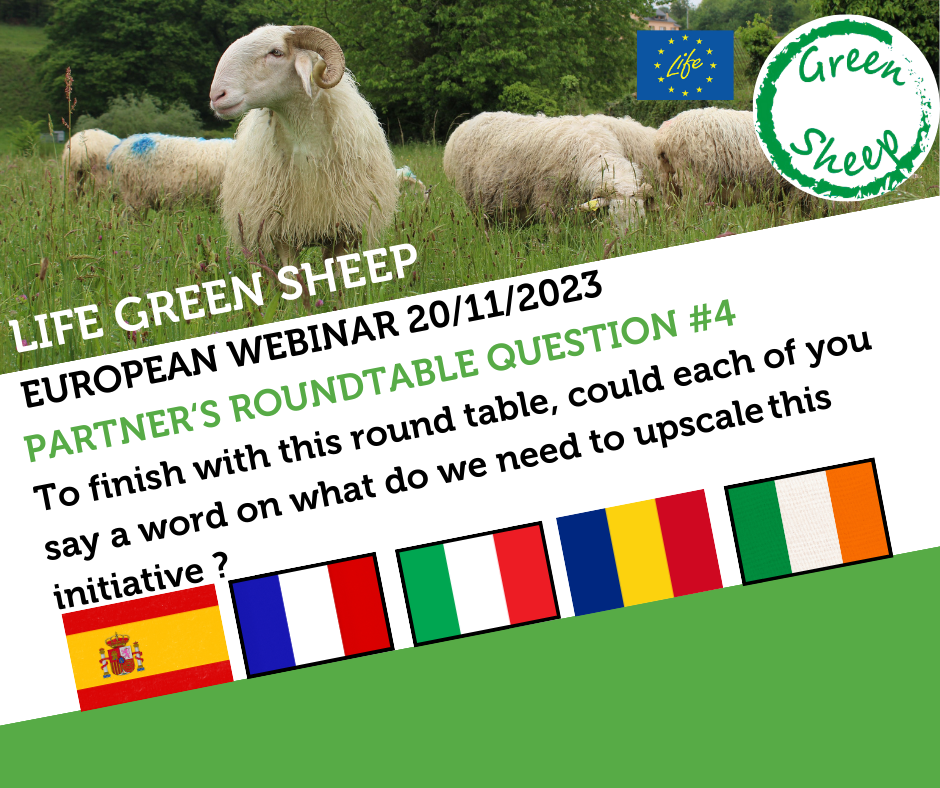![]() Cathal Buckley (Ireland)
Cathal Buckley (Ireland)
Tailored advice and extension to farmers so they can identify the right measures in the right place. Some measures are profit enhancing some are not. Some may involve learning new skills or practices that may be a hard sell to some farmers. Generally speaking, targeting of measures with either a carrot, stick or education.
![]() Roberto Ruiz (Spain)
Roberto Ruiz (Spain)
Economic support to implement innovation. Also to arise concern about the importance of sheep farming either between stakeholders and to the society, (farmers sometimes feel unrecognized and mistreated by the society, which, in their opinion, has not a relistic view of the sector), and so to enhance the self-esteem of sheep farmers. In order to implement innovation in other areas, it is crucial that the innovations proposed have been previously and succesfully tested, there is a clear protocol and the resources required to implement it, as well as qualified technical support involved in the objective.
![]() Gabriella Serra (Italia)
Gabriella Serra (Italia)
As with other topics (e.g. animal welfare), the economic incentive guaranteed to the farmers who take certain actions on their farms, is often the greatest incentive. But it is also true that if a massive and well-articulated informative intervention with widespread dissemination of these topics is not first carried out, a real and conscious interest will never be achieved, since, unfortunately, for many farmers the CC topic appears to be little or not at all clear and/or known.
![]() Catalin Dragomir (Romania) :
Catalin Dragomir (Romania) :
Financial incentives and farm profitability are the best and sometimes the only efficient drivers. There is a need to stimulate the associations or RD units to take over the roles of the former public advisory system (dismantled 10+ years ago) or to stimulate the development of the private advisory system, in order to help upscaling multiplication of the knowledge transfer and technology transfer.
![]() Sindy Throude (France)
Sindy Throude (France)
That’s what we need to work on as part of the C5 action coming at the end of the project, intitled “Development of national French/Irish/Italian/Romanian/Spanish Green Sheep action plans” to reduce the meat/milk sheep carbon footprint by 12% and a relevant partnership strategy,

